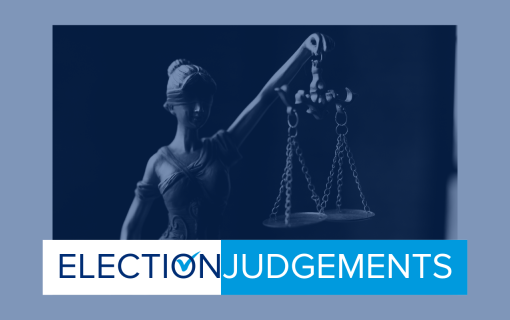Nigeria: All eyes on 2015
With the approach of national elections in February 2015, there is increased interest in the Nigerian Independent National Electoral Commission’s (INEC) preparations for the polls. The Adamawa gubernatorial election, which had been scheduled for October 11, was cancelled just days before it was scheduled to be held, following a decision by the country’s Federal High Court. Unfortunately, this development has removed an opportunity to test Nigeria’s preparations for the security challenges that will be faced during the general election in 2015, as Adamawa is one of three northern states that are currently under emergency rule and have borne the brunt of attacks by the terrorist group Boko Haram.
The gubernatorial elections held in Ekiti and Osun states earlier this year have been generally lauded as positive examples of securely conducted elections in Nigeria, and as proving the seriousness with which the Independent National Electoral Commission (INEC) is approaching electoral security concerns. However, neither state has yet had to deal with levels of threat equal to those in the Adamwa, Borno and Yobe. In a gubernatorial election, INEC has the option of pulling resources from other states, meaning that it can muster a large number of security personnel to secure the borders, roads and polling units. INEC will not have that option in a general election, because it will be operating elections in every state.
The distribution of permanent voters’ cards had already been suspended in some parts of Adamawa state due to insecurity before the election, and the high number of internally displaced persons would have added a further layer of logistical difficulty to the operation of the election. Given the challenges in Adamawa, assistance from the International Foundation for Electoral Systems (IFES) to INEC for the election was calibrated and scaled down considerably compared to the previous elections. IFES focused its support in Adamawa on voter education, conducting extensive civic and voter education in the lead up to those elections through public forums and trainings targeting civil society organizations that advance the rights of traditionally marginalized groups such as women and persons with disabilities.
The ongoing insecurity in northern Nigeria has led to concerns that it will be impossible to successfully conduct polls in some states or local government areas during the general elections. A number of stakeholders have urged the federal government to relax restrictions such as curfews during election time, so as to encourage citizens living in those states to participate in the electoral process. Despite the security concerns, and the challenges the Nigerian army has faced in combatting Boko Haram in the northeast, INEC has indicated that elections will be held in every state in Nigeria, irrespective of the security concerns. Although doubts remain about whether INEC’s security strategy used during recent gubernatorial elections can be scaled up sufficiently for the general election, the nature of the preparations undertaken in the lead up to the Adamawa election indicates that the Commission is committed to making the 2015 elections a success. IFES will continue to work in close partnership with INEC by providing the necessary technical and material support as the Commission begins the countdown to the polls in February.









